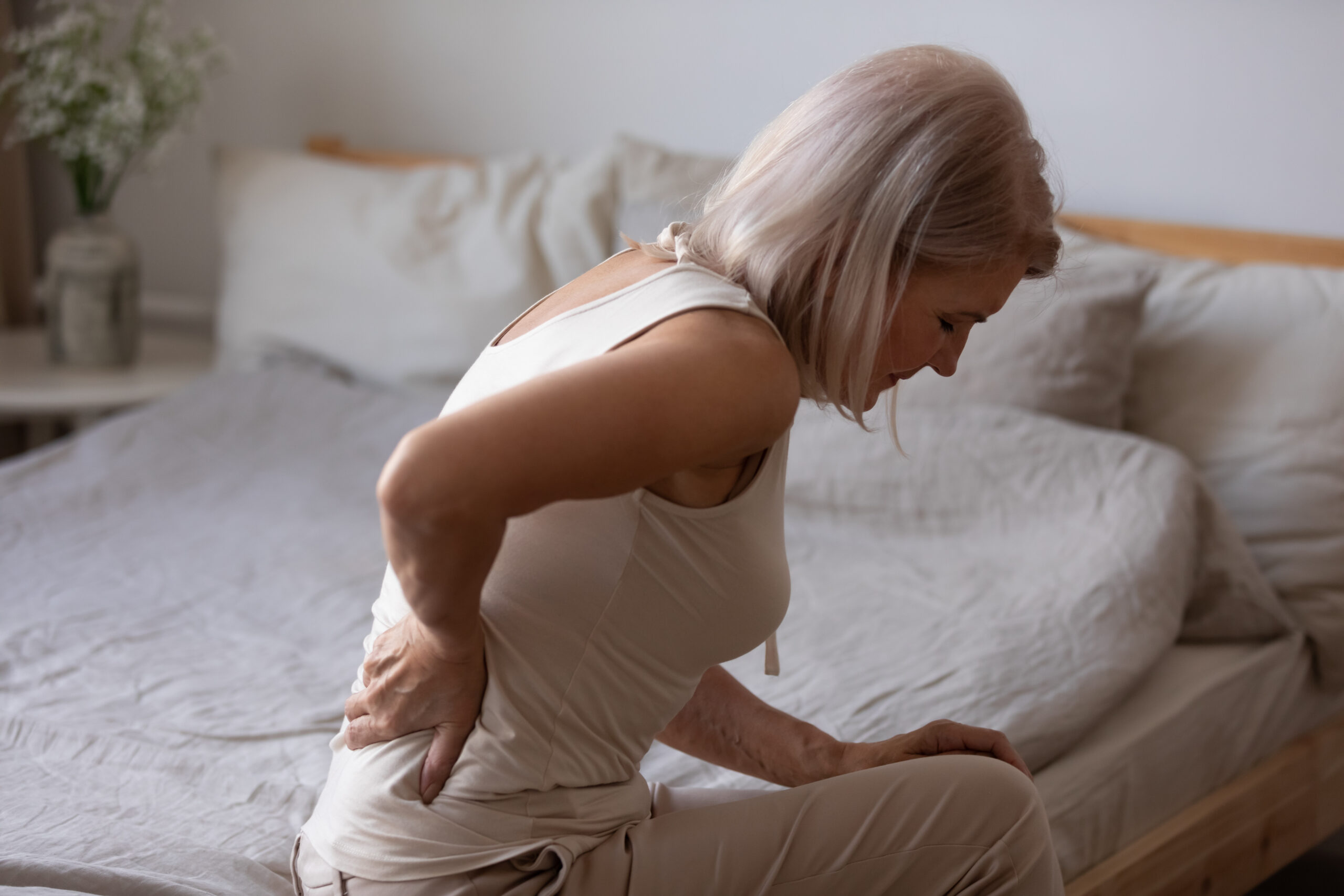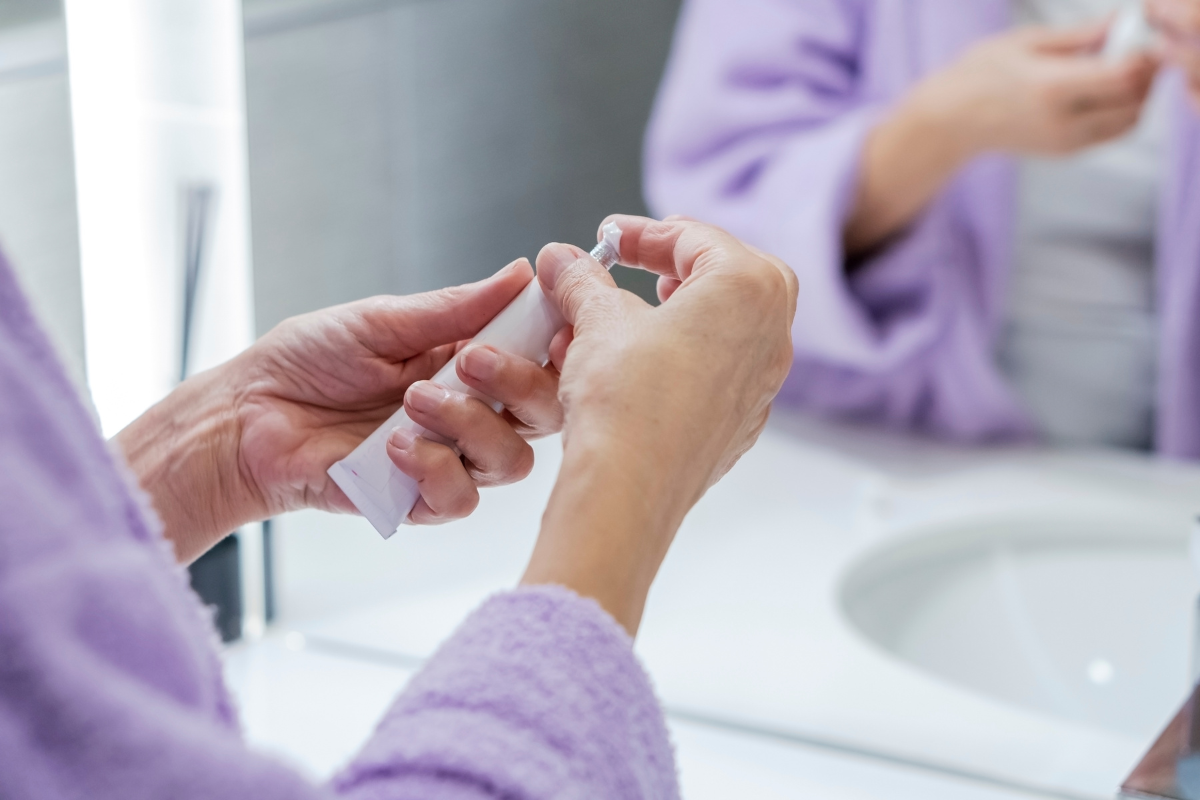
An aspect of ageing and the approach of menopause that is not widely talked about is the effect that it can have on a woman’s bone health. As women go through menopause, the amount of available oestrogen they have in their body drastically decreases. Unfortunately, this can have a negative effect on bone health, as hormones such as oestrogen are a key part of building new bone matter. You may be wondering what the connection between bioidentical hormone replacement therapy and osteoporosis is, and how our clinic can help – keep reading to find out more!
What is osteoporosis?
Osteoporosis is a skeletal health condition that weakens bones, making them more prone to fractures and breakages. It develops slowly over a number of years, and is usually diagnosed after sudden impact or a fall causes a break. It can be a very damaging condition, and severe cases can mean that something as simple as a coughing or sneezing could be the cause of a broken rib, which can cause long term pain and damage.
What’s the link between oestrogen and osteoporosis?
Rather than being one hormone, oestrogen is actually the name for the group of hormones that are responsible for development and regulation of the female reproductive systems (amongst other things). Both men and women have it, but it plays a much bigger role in women. Female oestrogen levels increase dramatically during puberty, and then decrease dramatically during menopause.
Although scientists do not know the exact link between oestrogen and bone formation, we know that oestrogen plays a vital role in bone health – it inhibits the activity of osteoclasts, which are responsible for the breakdown of bone cells. When oestrogen levels drop, the rate at which bones are remodelled and broken down can outpace the rate at which they’re built. This weakens an individual’s bones and leaves them vulnerable to fractures and breakages.
Women who experience either early menopause (before the age of forty-five) or who have had a hysterectomy are also at increased risk of developing osteoporosis due to a dip in their oestrogen. Reportedly, up to 30% of post-menopausal women in both Europe and the US may be suffering with osteoporosis. But we’re here to help!
Oestrogen – the key to treating osteoporosis
Developing osteoporosis during menopause can be a shocking experience, particularly as you are likely to only be diagnosed after a fracture or a breakage. It can be upsetting to learn that you are more susceptible to bone breaks, but fortunately, osteoporosis is both preventable and treatable (it was traditionally thought to just be part of ageing).
Understanding the link between oestrogen and osteoporosis has been the key to remedying some of the problems that women going through menopause face. One such treatment that has been developed to combat the onset of osteoporosis is Bioidentical Hormone Replacement Therapy (BHRT). An alternative to HRT, during BHRT hormonal balance is restored using hormones that have an identical chemical structure to the ones that occur naturally in the body. Bioidentical hormones can also be prepared in custom doses in order to address each patient’s individual needs.
Our approach to osteoporosis
As the UK’s leading bioidentical hormone replacement therapy clinic, our renowned doctors specialise in using BHRT to combat the onset of osteoporosis during menopause. As the treatment is tailored to each patient we first have to paint a detailed picture of an individual’s vitamin, mineral, and hormone levels. Through testing, we are then able to determine which hormonal treatments should be prescribed. Throughout the process a patient’s bone mass density is also closely monitored.
While it is widely acknowledged that bioidentical hormone replacement therapy is an effective solution for the treatment osteoporosis induced by menopause; it is also common knowledge that certain lifestyle changes can lessen the effects of the condition. At The Marion Gluck Clinic we take a multifaceted approach to treating osteoporosis, encouraging patients to complete certain exercises, reduce alcohol consumption, and take particular supplements to complement their BHRT treatment.
“For conditions such as osteoporosis, it’s best to take a multifaceted treatment approach. As well as undergoing bioidentical hormone replacement therapy at The Marion Gluck Clinic, there are lots of small, manageable changes that you can make to your lifestyle that will greatly improve your bone health. Exercise and diet both have a big impact on your skeletal health”.
Doctor Shashi Prasad – specialist in using BHRT to treat osteoporosis
Why exercise is important:
Carrying out regular exercise (particularly weight-bearing exercises) can increase bone density before menopause and slow down the rate of bone loss. It is therefore a great way a patient can improve their bone health while they go through BHRT.
How a change in diet can help:
There are lots of vitamins and nutrients that are important for healthy bones – the most important ones are calcium, vitamin D, vitamin K, vitamin C, and magnesium. We advise patients who are going through BHRT to incorporate foods that are rich in these vitamins into their diet as it will support their treatment.
The key to treating osteoporosis brought on by the menopause is its link to oestrogen. At The Marion Gluck Clinic we have pioneered the use of bioidentical hormone replacement therapy to combat the effects of a drop in oestrogen levels. If you would like to know more about our multifaceted approach to osteoporosis you can get in touch here.




